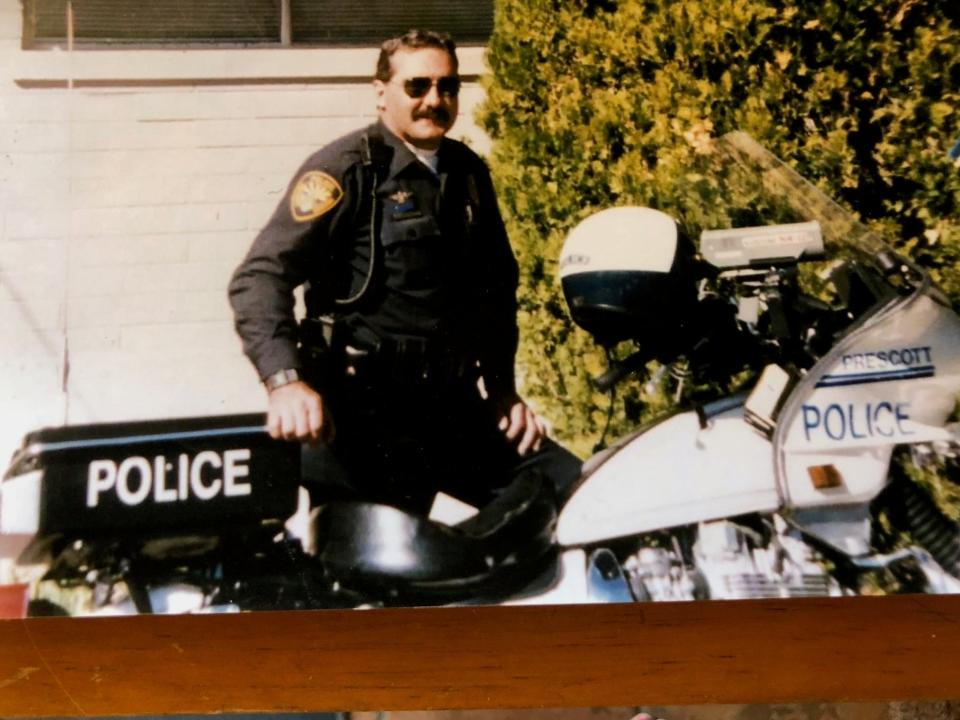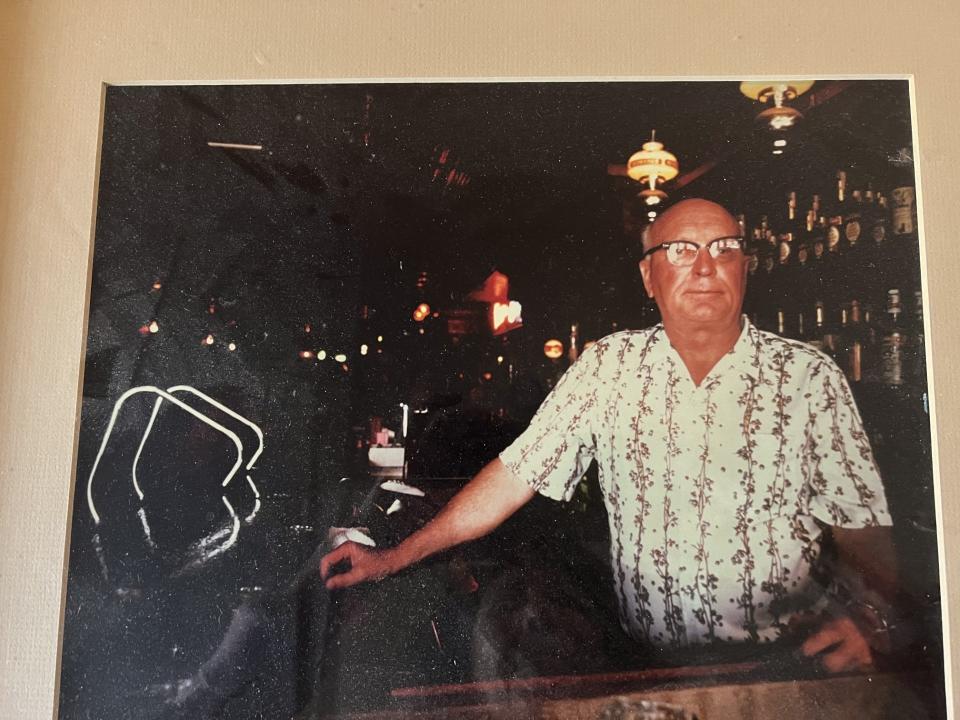Atomic bomb testing killed my husband and dad. We need to protect other 'downwinders'
Last Sunday, Christopher Nolan’s blockbuster “Oppenheimer,” which tells the story of the development of the atomic bomb and the Trinity test in New Mexico, won a number of Academy Awards, including “Best Picture.”
It was also a week in which I joined victims of the Trinity test, along with "downwinders" from Arizona and other states, in Washington, D.C., to ask Congress to extend and improve a program that offers cancer screenings and financial assistance to the people sickened by radiation from U.S. nuclear weapons.
The U.S. Senate did its job. The chamber overwhelmingly approved Sen. Josh Hawley’s bill to extend the Radiation Exposure Compensation Act until 2030 and to expand the program to include parts of Arizona not previously covered.
And to include coverage for not just those initially harmed by the exposure but to others harmed by the aftereffects in the decades since.
Not it’s up to the House to act.
The 2 men in my life suffered radiation exposure
This is personal to me.
My husband and my father were both victims of cancers like to nuclear testing and were compensated under the RECA program.

My spouse, John Hanna, Sr., a former Prescott police officer and Prescott city councilman, died in 2013 of non-Hodgkin’s lymphoma.
My dad, Kenneth L. Wayman, was a stringer reporter for The Arizona Republic in the 1970s and early 1980s and died in 1983 of esophageal cancer.
They battled with cancer treatments, but succumbed to painful deaths.
It's not if but when many of us will get cancer
There are strict requirements for individuals to qualify for compensation under RECA.
Applications are submitted to the Justice Department along with medical and other documents verifying qualifications. Since 2013, over $1.78 billion in compensation has been awarded to qualified individuals.
For so many of us in Arizona the question is not if we will receive a cancer diagnosis, but when.

The Radiation Exposure Compensation Act was intended to provide justice for people who lived downwind of U.S. nuclear test sites or worked in toxic uranium mines.
The testings' aftereffects reached far and wide
But many communities have been left out, from the victims of the very first nuclear weapon test in New Mexico, to downwinders in Southern Arizona.
These communities have never received compensation for damages and medical costs that resulted from exposure to nuclear testing fallout.
Oppenheimer’s Trinity test was just the beginning. Between 1945 and 1962, the U.S. government conducted over 200 above-ground nuclear tests, spreading radiation thousands of miles away from test sites and exposing thousands of people to unsafe levels of radiation.
Since RECA’s creation in 1990, science has expanded our understanding of who was hurt by our nation’s nuclear tests.
We know radiation does not stop at county lines, and in 1997, a study by the National Cancer institute found twice the amount of radiation exposure in lower Mohave County compared to other counties, such as Gila and Yavapai, which are much farther east of the Nevada Test Site but are now covered by RECA.
According to a report by Arizona health officials, Mohave County had one of the highest average cancer rates in the state from 1999 to 2001.
The federal lifeline for downwinders like me
Another study presently undergoing a peer review suggests that radiation from Trinity and the Nevada test sites spread across the United States.
Exposure to radiation from nuclear tests, nuclear waste, and uranium mining is associated with leukemia, lymphoma and several other kinds of cancer, lung disease, kidney disease, autoimmune disorders and thyroid disease.
Atmospheric testing at the Nevada Test Site was estimated to have caused between 11,000 and 212,000 cases of thyroid cancer in the U.S.
RECA has been a lifeline for many downwinders.
It has provided crucial cancer screenings, helped families manage medical bills that would otherwise have left them in massive debt and offered compensation for life-changing illnesses. It can mean the difference between bankruptcy and financial stability, forgoing treatment or being able to pay for cancer care.
The moral obligation to take care of downwinders
Downwinders and uranium miners have paid the cost for America’s nuclear arms race with their health and wellbeing.
Our government knew the risks, yet failed to warn or protect us: They planned tests on days when the wind was blowing away from the heavily populated West Coast, choosing instead to direct it towards those of us "downwind."
It’s morally imperative that the government now take care of the people who got sick because of their actions.
The House must act decisively to include all of Arizona and other communities sickened by radiation exposure.
So that President Joe Biden can fulfill his pledge to sign the reauthorization of RECA into law.
Downwinders and their families deserve nothing less.
Sherrie Hanna, an Arizona native, is a Downwinder who advocates for others who similarly suffered radiation exposure from U.S. atomic tests. She lives in Prescott. Reach her at hanna132@yahoo.com.
This article originally appeared on Arizona Republic: US owes 'downwinders' in Arizona exposed to atomic bomb testing

